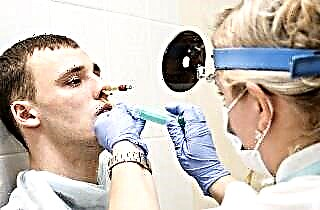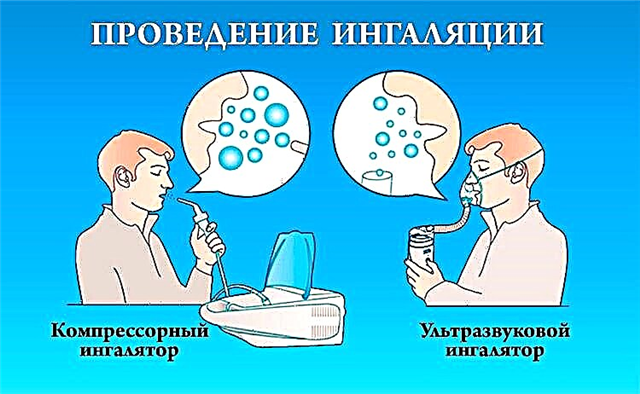Angina (acute tonsillitis) is an inflammation of the tonsils and tissues of the nasopharynx. Among the main symptoms of this disease are chills, increased body temperature, severe sore throat, weakness, the presence of white plaque, an increase in the size of the tonsils. These symptoms are a sign of the appearance and development of acute tonsillitis in the body or an exacerbation of a chronic infection. There are several types of microorganisms that are causative agents of the disease, among which bacteria, viruses and fungi are distinguished. Moreover, viral sore throats are as common as bacterial varieties of the disease.
The main groups of pathogens
There are several groups of pathogenic microorganisms that can cause sore throat.
- Bacteria. Often, in the case of bacterial sore throat, doctors diagnose the presence of streptococcal infection in the body. Much less often, bacteria such as staphylococcus, Yersinia, Haemophilus influenzae and others become the cause of bacterial sore throat.
- Viruses are another causative agent of an unpleasant disease. Pathogens of this type include herpes viruses, influenza, mononucleosis, adenovirus, etc. Very often, it is viruses that provoke a weakening of the immune system, which contributes to the addition of secondary infections and the development of bacterial sore throat.
- Fungi. This type of pathogenic microorganisms is most often activated against the background of a decrease in local immunity and a violation of the microflora in the nasopharynx as a result of prolonged use of antibiotics. Most often, fungal sore throats are found in children who have a weakened immune system. The main symptoms of this disease are fever and a white-gray coating on the tonsils.
Important! In order to prescribe the correct treatment, it is necessary to timely determine the type of microorganisms that caused the disease.
Causative agents of bacterial sore throat
This type of disease is referred to as nonspecific tonsillitis. Most often, the causative agents of the disease in this case are bacteria such as streptococci or staphylococci, less often pneumococci or chlamydia. To prescribe the correct treatment, it is necessary to identify the microorganisms that caused the sore throat; for this, a sowing from a smear is done.
- Streptococci are classified as gram-positive bacteria. Most often, these microorganisms are localized in separate colonies of several cells. For the full development of streptococci, anoxic conditions are necessary. In the active phase of growth and reproduction, this type of bacteria can harm the cells of the tissues of the nasopharynx, reduce the resistance of blood serum, destroy blood cells, and also contribute to an increase in temperature during infection.
- Staphylococci also belong to bacteria that are able to penetrate the membranes of blood cells, provoking their destruction.

- Also, the causative agent of bacterial sore throat can be pneumococci - microorganisms related to the causative agents of pneumonia.
- Mycoplasmas are microorganisms, the cells of which have a more complex structure in comparison with the cells of viruses, but much smaller in comparison with the cells of bacteria. This pathogen can cause various inflammatory processes in the body, including tonsillitis.
- Chlamydia is another type of microorganism that can provoke angina. This type of disease is characterized by the presence of dry cough and a significant increase in the submandibular lymph nodes.
What methods are used to combat the above bacteria? Most often, antibiotic therapy is used. After all, it is possible to stop the development and reproduction of the most common pathogens of bacterial sore throat, such as streptococci and staphylococci, as well as to prevent the development of complications, only with the help of antibiotics.
Basic principles of therapy
In order to quickly eliminate the symptoms of the disease, timely and correct treatment is necessary.
- Intramuscular antibiotics are the most effective treatment.
- The minimum period for taking antibiotics is seven to ten days. In this case, in no case should you independently interrupt or stop treatment, even if the symptoms of the disease have disappeared and the general condition of the patient has returned to normal.
Important! Stopping antibiotics early can lead to incomplete destruction of bacteria and the development of complications.
- At the same time, the sooner antibiotic therapy is started, the faster the symptoms of the disease will be alleviated and the full recovery will come without the risk of subsequent complications, excluding the possibility of purulent sinusitis, otitis media, pneumonia.
- If, after the start of taking antibiotics on the second day, there is no improvement, a high body temperature and severe sore throat persist, then it is necessary to adjust the treatment by replacing the drug with another.
- Treatment of angina caused by mycoplasma or chlamydia is ineffective when using traditional antibiotics.
It should also be remembered that in addition to antibiotic therapy, sore throat, caused by both bacteria and viruses, are prescribed drugs aimed at alleviating the accompanying symptoms of the disease.
sore throat, caused by both bacteria and viruses, are prescribed drugs aimed at alleviating the accompanying symptoms of the disease.
So, if the patient has an elevated body temperature, then it is necessary to use antipyretic drugs. With high swelling of the throat, it is advisable to use antihistamines, which can significantly reduce the likelihood of developing allergic reactions. Also, in the treatment of angina, rinses are mandatory, the main purpose of which is to remove plaque from the tonsils, which prevents the further development of microorganisms.
Diseases provoking the onset of sore throat
What bacterial diseases can cause sore throat, provoking its development as a secondary infection?
So, acute tonsillitis can be triggered by:
- diphtheria. The main symptoms of this infection are high fever, thick plaque on the throat and tongue, ulcers on the tonsils - all this can provoke the occurrence of bacterial sore throat, which in this case will be caused by diphtheria bacillus.
- scarlet fever. After all, this disease is caused by streptococcal infection, which is also the causative agent of sore throat. With scarlet fever, additional foci of infection can often occur that affect other organs.
Important! Angina may not occur on its own, but as a complication against the background of other diseases.
Despite the fact that there is effective vaccination against many viral and bacterial infections today, it is impossible to get vaccinated against sore throat. The thing is that the characteristics of the bacteria that cause angina are a large number of different strains, which does not allow the development of a universal means of preventing the disease. After all, the immunity obtained as a result of vaccination to one pathogen will be ineffective or not at all effective against angina caused by another pathogen. Most often, infection occurs during the cold season as a result of frequent hypothermia and a significant weakening of the protective functions of the body.




